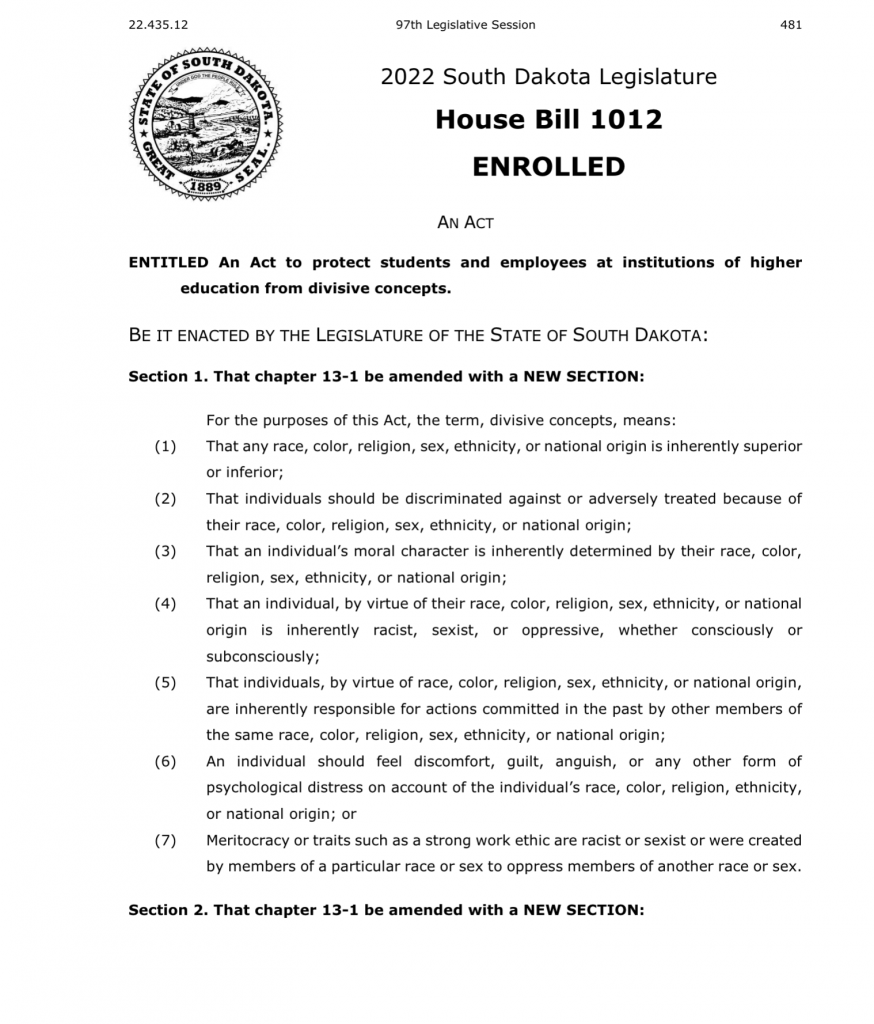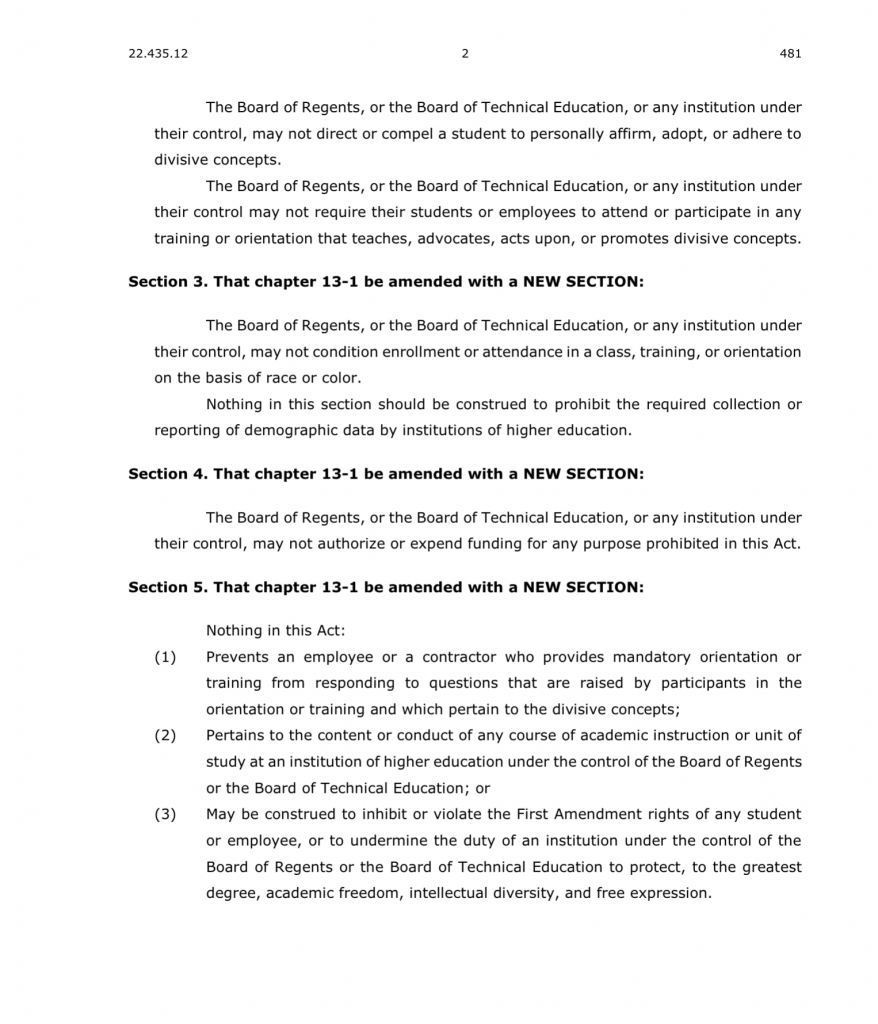See The Newly Passed South Dakota Legislation Banning Critical Race Theory
South Dakota just became another state to enact anti-critical race theory legislation, but not before the bill was heavily amended.
Another state just joined the growing number of states in the nation to ban critical race theory models and teachings. Critical race theory, or CRT studies and analyzes ideas suggesting that the foundation of the country’s laws were founded by racist concepts. Moreso, how racism and the nation’s foundation were formed to protect white people while further dividing other races. With some 15 states now passing legislation against CTR teachings, South Dakota recently joined in on the ban, as Governor Kristi Noem signed legislation that bans certain CRT aspects in the Mount Rushmore State
HB 1012 was signed into law on Monday after landing on the desk of Governor Kristi Noem. The intent of the education bill is to protect students and employees at colleges and universities from divisive concepts, or in other words, critical race theory. In more detail, higher ed institutes that are under the control of the South Dakota Board of Regents will no longer be able to require students to attend any orientations or training that are based upon critical race theory.

The bill was originally introduced at the beginning of this year by The Committee on Education at the request of the Office of the Governor. And although the law will now limit critical race theory concepts in college, it was originally intended to cover all levels of school. Through its progress traveling through congress, the bill was heavily amended before coming to the conclusion to only apply the law to higher ed. As it stands, the legislation lists seven divisive concepts prohibited from being a mandatory part of training for new college students and faculty members.
It should be noted that the new legislation does not bar professors from teaching critical race theory concepts in classrooms. In reviewing amendments, it looks like the bill was amended this way as to not violate the First Amendment or academic freedom and intellectual diversity. Currently, there are numerous lawsuits in the work to sue states that have already enacted anti-CRT legislation.
South Dakota’s Republican Governor has always been a backer of the anti-critical race theory movement. In a statement regarding her signing of the bill, Noem said “No student or teacher should have to endorse Critical Race Theory in order to attend, graduate from, or teach at our public universities”. And while much of the conversation in politics had made it sound as if CRT is being taught inside public schools, the teaching has largely been dubbed to be a concept only discussed at the college level. Furthermore, Governor Noem repeated her stance against the teachings saying that colleges should be institutions that promote freedom of thought and expression, not suppressed by political agendas.

But professors like Dr. Dyanis Conrad-Popova feel that there is no political agenda behind the concept of critical race theory. The University of South Dakota professor was accused by the governor’s office of being a college professor implementing critical race theory into class lectures. KELOLAND News reached out to the professor, who claims critical race theory is not part of her curriculum. Said to be the catalyst kicking off the governor’s crusade to ban CRT, the professor said, “In my class, I never teach CRT, I don’t use that phrase at all, I don’t think I’ve ever used it at USD”. Many, however, argue that just because the term isn’t used doesn’t mean it isn’t being taught.
After signing the bill into law Monday, the critical race theory legislation went into effect immediately. This will likely mean that the state’s 22 colleges will have quite the task ahead of re-addressing all training and orientation material in a means to weed out anything that can be considered a divisive concept. And as South Dakota became yet another state to implement laws against CRT, more will likely follow suit.



